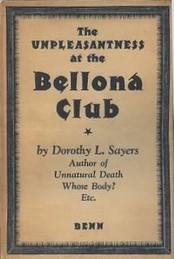
The First World War was, infamously, a source of both transformation and trauma. In this episode, Lucy and Elizabeth find evidence of the ways in which the War to End all Wars influenced some of the greatest British mystery novels of the mid-20th century, especially how experiences of WWI were normalized, memorialized, or condemned within their pages.
Podcasters: Elizabeth and Lucy
Further Reading
Novels Agatha Christie, The Mysterious Affair at Styles ————-, The Secret Adversary ————-, N or M? ————-, Murder in Mesopotamia Ngaio Marsh, Death in Ecstasy ————-, Overture to Death ————, Artists in Crime ————-, When in Rome Dorothy L. Sayers, Whose Body? ————-, The Unpleasantness at the Bellona Club ————-, Gaudy Night ————-, Busman’s Honeymoon Secondary Works Evelyn Cobley, Representing War: Form and Ideology in First World War Narratives, University of Toronto Press, (1993). Nóra De Buiteléir, "Under the Magnifying Glass: Investigating the First World War in Recent Crime Novels by Ben Elton, Jan Eik, and Horst Bosetzky", The Modern Language Review 110, no. 2 (2015): 362-78. Paul Fussell, The Great War and Modern Memory, Oxford University Press, (1975). Anne Perry Korte, "World War I as Period Mystery", Clues: A Journal of Detection, 28 (2010), 79–89. Dennis Porter, The Pursuit of Crime: Art and Ideology in Detective Fiction, Yale University Press, (1981). David Prestidge, “The Best WWI Crime Fiction.” Jay Winter, Remembering War: The Great War Between Memory and History in the Twentieth Century, Yale University Press, (2006). Music: "Evening Melodrama" by Kevin Macleod (www.incompetech.com)
0 Comments
Leave a Reply. |
Site Map |
© 2013-2024 Footnoting History. All rights reserved.
Footnoting History and the Footnoting History logo
are trademarks of Footnoting History, NY. Footnoting History operates under a SAG-AFTRA Micro-Monetized Podcast Agreement. |

